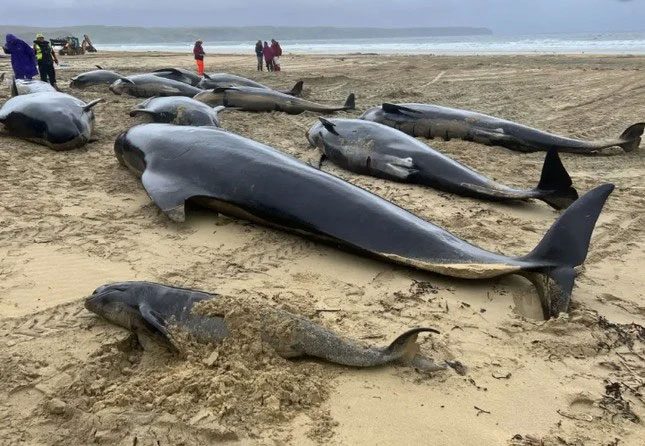A pod of over 50 pilot whales has died after being stranded on the shores of an island off the northwest coast of Scotland.
The British Divers Marine Life Rescue (BDMLR) reported that 55 pilot whales were found dead shortly after stranding near the village of North Tolsta on the Isle of Lewis. Only 15 were still alive when discovered.

Pilot whales lying scattered on the beach in Scotland. (Photo: BDMLR).
“Many were dead by the time they were found, indicating they may have been stranded overnight,” said Dan Jarvis, the animal welfare director of BDMLR.
According to this expert, pilot whales can only survive about 6 hours after being beached.
According to the Scottish Marine Animal Stranding Scheme (SMASS), this could be the largest mass stranding of pilot whales in the area in decades.
“As social animals, pilot whales have extremely strong bonds and connections with one another,” Mr. Jarvis noted. He explained that if one whale gets into trouble and strands, the others in the group – or at least some of them – will swim after it and also end up stranded.
SMASS announced on social media that they would be collecting samples and conducting necropsies to assess the health of the pod and investigate the causes of the stranding.
One of the potential reasons being considered is sonar waves used by military forces to detect underwater vehicles of adversaries. According to a study published in the Proceedings of the National Academy of Sciences (PNAS) last year, many dolphin species slow down or temporarily halt foraging behavior when they hear sonar or sounds from predators.
Mass strandings of pilot whales are a common phenomenon worldwide. In the UK, the largest recorded pilot whale stranding occurred in Scotland in 2011 when 77 whales beached on the northern coast.


















































